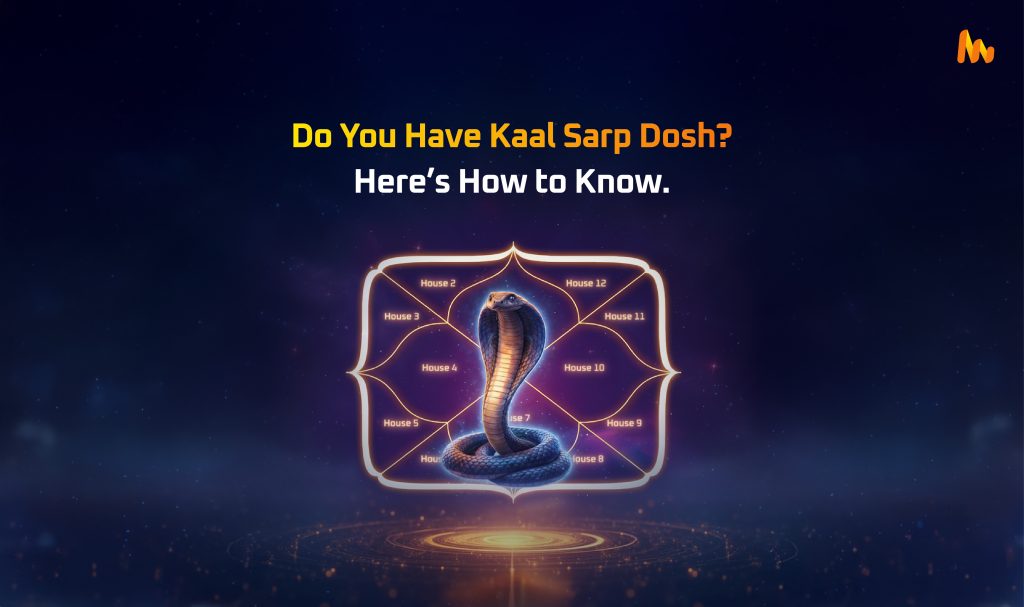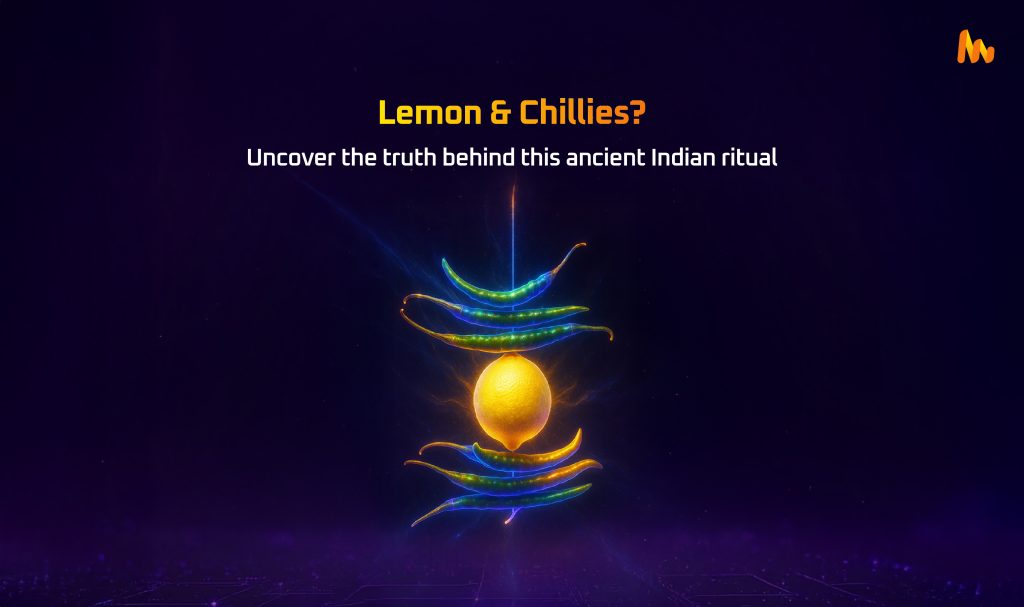In Indian astrology, few terms spark as much curiosity and concern as Mangal Dosha. Known also as Manglik Dosha, this astrological condition is believed to influence an individual’s married life profoundly. For those navigating the complexities of Kundali matching before marriage, understanding Mangal Dosha becomes essential—not just for tradition’s sake, but for emotional security, compatibility, and future harmony.
But what exactly is Mangal Dosha? Is it really a celestial red flag, or just another misunderstood placement in the birth chart?
Let’s explore the origin, astrological mechanics, psychological impact, and modern interpretations of Mangal Dosha—and how it plays a pivotal role in Kundali Milan (compatibility matching) for marriages in Vedic astrology.
What is Mangal Dosha?
Mangal Dosha arises when the planet Mars (Mangal) is placed in certain specific houses of a person’s birth chart (Kundali). According to Vedic astrology, Mars is a fiery and aggressive planet. While it can bring courage, drive, and ambition, its volatile energy may disrupt the peace and harmony of marriage when misaligned.
Astrological Houses Responsible for Mangal Dosha
If Mars is situated in any of the following houses, the individual is considered Manglik:
- 1st House (Lagna or Ascendant)
- 4th House
- 7th House (House of Marriage)
- 8th House
- 12th House
Each of these positions is believed to interfere with married life in different ways:
- 1st House: Affects personality and temperament, often leading to impatience or aggression.
- 4th House: Can create domestic discomfort or stress within the home.
- 7th House: Directly influences marital harmony and may cause conflict or delay in marriage.
- 8th House: Relates to longevity and intimacy, leading to emotional instability or financial trouble.
- 12th House: Can impact sleep, sensual pleasures, and mental peace, affecting marital bonding.
This placement is seen as especially inauspicious when it comes to marriage, particularly when both partners don’t share a similar planetary condition.
Who is a Manglik?
A person with Mars in any of the above houses is labeled a Manglik. However, there are degrees to how strongly Mangal Dosha affects a person, depending on aspects (drishti), conjunctions, planetary strength, and even remedies in the chart.
Moreover, Mangal Dosha can manifest differently for men and women. While both genders may experience their challenges, traditional texts often note that women may face more societal scrutiny around this Dosha, sometimes leading to stress or misjudgment.
Types of Mangal Dosha
Mangal Dosha isn’t a one-size-fits-all affliction. It varies in intensity:
- Anshik Mangal Dosha (Partial): Milder impact, often canceled by benefic planetary positions.
- Complete or Full Mangal Dosha: Stronger influence requiring astrological remedies or special marital matching.
- High Mangal Dosha: When Mars is in a very strong or aggressive position (like own sign or exalted), its impact is amplified.
The Dosha is also categorized based on the Lagna Chart, Moon Chart, and Venus Chart. A Manglik in all three charts is said to face the most challenges.
Effects of Mangal Dosha on Marriage Compatibility
Mangal Dosha is most commonly associated with discord in marriage. According to traditional beliefs, the following issues may arise:
1. Delay in Marriage
The fiery nature of Mars may cause difficulties in finding a suitable match or lead to repeated breakups or rejections.
2. Conflict in Marriage
Manglik individuals might experience frequent arguments, emotional distance, or inability to compromise.
3. Health and Financial Instability
Mars positioned poorly may influence the health of either spouse or lead to unforeseen financial stress in the relationship.
4. Separation or Divorce
In severe cases, the tension created by Mars’ placement may result in separation or even widowhood—though this interpretation has evolved in modern times and is not considered a fixed outcome.
Can Two Mangliks Marry Each Other?
Yes—and often, this is the most recommended remedy.
When both partners have Mangal Dosha in their respective Kundalis, it is believed that their energies cancel each other out. This neutralization is called Dosha Samya.
This principle forms the basis of many successful Manglik-Manglik marriages. In fact, modern astrologers emphasize this matching rather than advising against marriage altogether.
How is Mangal Dosha Analyzed During Kundali Milan?
In the process of Kundali Milan (horoscope matching), astrologers consider 36 Gunas (qualities) under the Ashtakoota Milan system. Out of these, Bhakoot and Grah Maitri are crucial when checking for Mangal Dosha and planetary compatibility.
If Mangal Dosha is detected, the astrologer will also assess:
- The position of Mars in the partner’s chart
- Strength of benefic planets (like Jupiter or Venus)
- Presence of Dosha cancellation (Mangal Dosha Nivaran Yoga)
- Navamsa chart analysis (D-9 chart)
Sometimes, if the Dosha is strong but cancelable, astrologers recommend specific remedial measures.
Mangal Dosha Remedies
Vedic astrology provides several solutions to reduce or neutralize the ill effects of Mangal Dosha. These remedies are not only spiritual but also psychological—offering peace of mind to those deeply concerned about marital stability.
Popular Remedies Include:
- Kumbh Vivah: A symbolic marriage with a peepal tree, Vishnu idol, or earthen pot to neutralize the Dosha.
- Chanting Hanuman Chalisa: Mars is associated with Lord Hanuman, and regular chanting is believed to pacify its energy.
- Fasting on Tuesdays: This is Mars’ day, and fasting can reduce its malefic influence.
- Reciting Navagraha Mantras or Mangal Stotra
- Donating red items (like red lentils, clothes, or coral stones) on Tuesdays
- Wearing a red coral gemstone, after astrological consultation
It’s important to consult a trusted astrologer or platform before undertaking any remedy, as they must be tailored to the individual chart.
Modern Perspective on Mangal Dosha
In modern times, Mangal Dosha has been both revered and critiqued.
While many still follow Kundali Milan for cultural and emotional assurance, others view Mangal Dosha as an outdated notion rooted in fear. The rise of psychological compatibility, shared values, and mutual respect has redefined how relationships are assessed.
Still, astrology offers a symbolic and spiritual map. Mangal Dosha can be seen not just as a roadblock but as an invitation for deeper understanding—of ourselves and our partners.
Even scientifically, Mars’ energy can be interpreted as a metaphor for passion, action, and impulse. So, if anything, Manglik individuals must learn to channel that intensity constructively within relationships.
Is Mangal Dosha Always Bad?
Not necessarily. Mangal can be a planet of courage, leadership, passion, and dynamism. If well-placed or positively aspected, even a Manglik may enjoy:
- Strong decision-making
- Protective instincts in marriage
- Unshakeable loyalty and love
- Intense romantic bonding
So instead of labeling someone based on Dosha, it’s wiser to understand the complete picture.
Conclusion
Mangal Dosha is one of the most discussed yet misunderstood elements in Vedic astrology. While its influence on marriage compatibility is significant, it’s not a final verdict on your relationship or destiny.
Understanding your Kundali is not about superstition; it’s about preparation, awareness, and balance. And Mangal Dosha, when interpreted rightly, offers an opportunity for growth, alignment, and self-awareness.
Whether planning to get married or are simply curious about your compatibility with a partner, a detailed Kundali Milan Compatibility Report can give you clarity, comfort, and cosmic insight.
For those seeking deeper clarity, VedVaani is the perfect AI-powered personalised astrology app that gently guides you and reveals what words and emotions often can’t.






